Posts Tagged ‘attorney’
Will Toyota Criminal Penalty Improve Safety?
 Toyota agreed last week to pay a record $1.2 billion criminal penalty for misleading consumers and the government about unintended acceleration in its vehicles. This safety defect and others have resulted in numerous injuries and deaths. Over 10 million Toyota vehicles have been recalled so far.
Toyota agreed last week to pay a record $1.2 billion criminal penalty for misleading consumers and the government about unintended acceleration in its vehicles. This safety defect and others have resulted in numerous injuries and deaths. Over 10 million Toyota vehicles have been recalled so far.
This is the largest criminal penalty ever imposed on a car manufacturer. As part of the agreement, the Justice Department charged Toyota with wire fraud but deferred the criminal charge for three years while the company submits to government monitoring.
We have been reading about Toyota’s safety defects for many years now, along with the more important violation of trust: the Japanese automaker repeatedly failed to warn the public about safety problems. CNN reported last week that the company “at one point boasted internally about saving $100 million in costs by avoiding a full safety recall.”
To date, Toyota has paid out more than $66 million in fines for not immediately reporting defects. Several of these fines have been record-breaking. In 2010, the National Highway Traffic Safety Administration fined the company a record $16 million for its delayed response in notifying the government about defects. In 2012, the NHTSA fined the company an additional $17.4 million.
The company has faced numerous injury and wrongful death lawsuits. In addition to sticky pedals and unintended acceleration, unsecured floor mats and other equipment have caused safety hazards. Last October, an Oklahoma jury decided that defective electronics were to blame for a car accident which killed a woman and seriously injured another person. Toyota was ordered to pay $3 million in damages.
As for Toyota, U.S. Attorney General Eric Holder told the Detroit Press: “Put simply, Toyota’s conduct was shameful. It showed a blatant disregard for systems and laws designed to look after the safety of consumers. By the company’s own admission it protected its brand ahead of its own consumers.”
Still, consumers have continued to buy Toyota. The company was the top-selling automaker in 2012 and 2013, selling 9.98 million vehicles in 2013.
Related:
Toyota to pay $1.2 billion in settlement with U.S. over recalls, CNN.
Read More
February Product Recalls: CPSC Urges Consumers to Look for Cedar Chests after Children’s Deaths
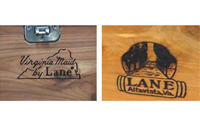 We share some of the February product recalls and notices issued by the Consumer Product Safety Commission (CPSC). Each year, thousands of unsafe products are recalled by the CPSC and other government agencies. The CPSC is now focused on the dangers of wooden chests, issuing a renewed call for the cedar chests which recently trapped two young children in Franklin and warning about other chests which have unsafe latches. Since 1996, the agency is aware of 34 reports of deaths involving wooden storage and toy chests.
We share some of the February product recalls and notices issued by the Consumer Product Safety Commission (CPSC). Each year, thousands of unsafe products are recalled by the CPSC and other government agencies. The CPSC is now focused on the dangers of wooden chests, issuing a renewed call for the cedar chests which recently trapped two young children in Franklin and warning about other chests which have unsafe latches. Since 1996, the agency is aware of 34 reports of deaths involving wooden storage and toy chests.
Protect your family and home by taking a quick glimpse at this month’s list:
Renewed Search for Cedar Chests. On Feb. 27, the CPSC and Lane Home Furniture issued a call for the public to make a renewed search for the company’s cedar chests. On Jan. 12, a young brother and sister from Franklin suffocated to death in one of the chests while playing hide-and-seek. The CPSC investigation determined that the 75-year-old Lane cedar chest closed and automatically latched shut, locking the children inside.
The chest should not have been in use with the defective locks. In 1996, the Lane Company recalled 12 million similar chests which were made between 1912 and 1987. By 1996, six children had suffocated inside the cedar chests. By 2000, a seventh child had suffocated and two others had nearly died. The company has offered new hardware so the chests will no longer automatically latch shut, but reports estimate there are still 6 million chests which need the repair.
Consumers may have one of these chests in their homes even if they do not realize it. Some may have been purchased at second-hand stores or passed down through families. In the Franklin case, the CPSC said the chest was purchased at a local resale store about 13 years ago. Consumers can look for these names inside the cedar chests: “Lane” and “Virginia Maid.”
If you have a chest, you should immediately remove the latch and contact Lane for the replacement hardware. Read the recall notice.
Infantino Recalls Teething Toys Due to Choking Hazard; Sold Exclusively at Target
Infantino has recalled about 191,000 teething toys sold at Target. The toy was the “Go Gaga Squeeze & Teethe Coco the Monkey.” The company received seven reports of infants choking or gagging on the monkey’s tail. No injuries have been reported. The toys were sold at Target stores nationwide and online from December 2012 through January 2014 for $13. Consumers should take these toys away from young children and contact Infantino for a free replacement.
BebeLove Recalls Baby Walkers Due to Fall and Entrapment Hazards
BebeLove Baby Walkers were recalled for not meeting federal safety standards. BebeLove USA recalled about 3,600 models sold on Amazon.com, Overstock.com and small retailers in California, Arizona and Utah from November 2011 through July 2013.
Consumers can are advised to stop using the product and contact BebeLove for a free repair kit.
No injuries have been reported, but the CPSC reports that style number 358 can fit through a standard doorway and is not designed to stop at the edge of a step as required by the federal safety standards. In addition, style number 368 has leg openings which allow a child to slip down to the point their head can become entrapped at the neck. The CPSC said children using these walkers can be seriously injured or killed.
Rowe Fine Furniture
Rowe Fine Furniture recalled about 220 Ottomans due to a risk of suffocation. No injuries were reported, but the company learned a child became trapped in an Ottoman after a sibling closed the lid on the storage compartment. Consumers can contact Rowe for a free replacement lid and a warning label.
Pedestrians Being Fined in Some U.S. Cities
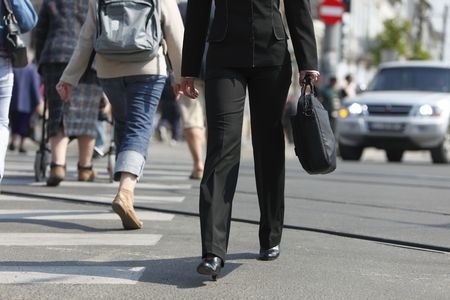 Pedestrians now have to watch out for more than just traffic in two major cities.
Pedestrians now have to watch out for more than just traffic in two major cities.
Jaywalking laws have traditionally gone unenforced in many cities, but New York City and Los Angeles are now telling pedestrians to follow the letter of the law or face citation. Pedestrians are surprised, and in some cases, are facing hefty fines for crossing the street before the traffic signal changes. One man in Los Angeles was ticketed $197 as he walked to work.
“I didn’t even know that was against the law,” he told the New York Times. “I was like, “You are the L.A.P.D., and this is what you are doing right now?”
New York City Police are taking the same steps. The city saw 12 pedestrian fatalities in January, prompting new Mayor Bill de Blasio to announce Vision Zero, a plan to eliminate traffic deaths within 10 years. Vision Zero focuses largely on drivers, but at the same time, New York City Police have started enforcing jaywalking laws.
Pedestrians have responded strongly against enforcement, both in Los Angeles and New York City. In Los Angeles, a lawyer who was ticketed as he walked to a local courthouse told the New York Times:
“Honestly, I cussed them out for about five minutes. I told them what a stupid waste of time this was, and wasn’t it great that they had two police officers standing there when there are obviously more important issues out there.”
In New York City, an 84-year-old man, Kang Wong, has filed notice he plans to sue the city and police department for $5 million. He alleges he was pushed against a wall and beaten as he was cited, sustaining head injuries and other trauma.
In New York City, three of the pedestrians were killed in the Upper West Side, near Broadway and 96th Street. They were a 9-year-old boy who was hit by a taxi as he crossed the street with his father, a young doctor struck by an ambulance outside her apartment building and a 73-year-old man hit by a tour bus.
After these deaths, the city installed electronic signs warning pedestrians to use the crosswalks. Police stood by with a bullhorn, citing pedestrians who violated jaywalking laws $40-$100.
Every city has an interest in this conversation, including here in Boston and Massachusetts. Our state sees an average of 86 pedestrian deaths each year, nearly one fifth of all traffic fatalities, according to WalkBoston, a non-profit advocacy organization which represents pedestrians and 75 cities and towns across the state.
But rather than ticket pedestrians, WalkBoston advocates for improving infrastructure and education. For instance, it notes that 90 percent of pedestrians killed are struck by cars traveling 40 mph compared to 5 percent who die by cars traveling at 20 mph. One way to encourage drivers to slow down is to reduce travel lane widths, the organization says.
Perhaps you are wondering what the fine for jaywalking is in Massachusetts. We hope you are sitting down: It is $1.00! But after three offenses, the fine doubles M.G.L. c. 90, § 18A. Municipalities won’t balance their budgets on jaywalking tickets, that’s for certain.
Related:
New York City takes aim at jaywalking, The Boston Globe.
Read More
Product Recalls in January: Baby Strollers, Walmart Table Sets
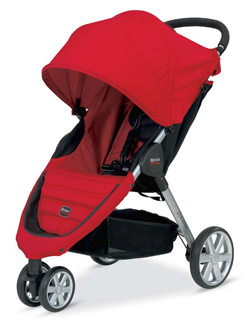 A few weeks ago, two young children in Franklin tragically died after becoming trapped in a defective wooden hope chest during a game of hide and seek. We follow reports of defective products carefully, and we now share some of the January product recalls issued by the Consumer Product Safety Commission (CPSC). That agency is charged with protecting the public from unreasonable risks of injury or death associated with consumer products.
A few weeks ago, two young children in Franklin tragically died after becoming trapped in a defective wooden hope chest during a game of hide and seek. We follow reports of defective products carefully, and we now share some of the January product recalls issued by the Consumer Product Safety Commission (CPSC). That agency is charged with protecting the public from unreasonable risks of injury or death associated with consumer products.
Britax Stroller Recall
Britax recalled 225,000 strollers last week due to the stroller’s folding mechanism, which poses a risk for partial fingertip amputation. The company had received eight incident reports, including one partial fingertip amputation, one broken finger and severe finger lacerations.
Consumers are advised to stop using the recalled strollers immediately and contact Britax for a free repair kit.
The recall involves these models: Britax B-Agile, B-Agile Double and BOB Motion Strollers. They were sold at major retailers and juvenile product stores nationwide from May 2011 through June 2013. They were also sold through Amazon.com, ToysRUs.com and other online retailers. They sold for between $250 and $450.
In recent years, Maclaren USA has also recalled strollers with hinges which posed an amputation risk. In 2009, Maclaren USA recalled one million strollers after 12 reports of fingertip amputations and three other incidents. The company re-issued the recall in 2011. By that time, it had received a total of 149 reports, including 17 reports of fingertip amputations and other injuries, including lacerations and fingertip entrapments/bruising.
Pacifier Recalls
There were two recalls related to pacifiers this month. On Jan. 22, Playtex recalled 1.25 million pacifier holder clips in the U.S. and 150,000 in Canada. These clips attach the pacifier to clothing, diaper bags and strollers.
Playtex received 99 reports of the holder cracking or breaking. No injuries have been reported. Consumers are advised to stop using the product and contact Playtex for a full refund.
Last week, Fred & Friends recalled three models of its “Chill Baby” pacifier line, including 183,000 in the United States and 17,000 in Canada. The pacifiers have novelty features which can detach and do not meet federal safety standards. No injuries have been reported but consumers are advised to stop using the pacifiers and return them to Fred & Friends for a $12 refund.
Gree Dehumidifier Recall Expanded
In September, Gree recalled 2.2 million dehumidifiers under 12 brand names because they posed a risk for fire and burns. It expanded this recall last week, adding another 350,000 dehumidifiers under the GE brand name in the U.S. and 2,700 in Canada. The company had received 16 reports of incidents, including 11 reports of overheating with no property damage and 5 reports of fires associated with $430,000 in property damage.
The previous recall was associated with more than 71 fires and $2,725,000 in property damage. No injuries have been reported.
These dehumidifiers were manufactured by Gree Electric Appliances of China and imported by GE Appliances of Louisville, Kentucky. They were sold from April 2008 through December 2011 at Sam’s Club, Walmart and other stores in the U.S. and Canada. They were also sold on Amazon.com and Ebay.com. They sold for between $180 and $270. Consumers are advised to stop using the dehumidifiers and contact Gree for a refund.
Walmart Card Table and Chair Sets Recalled
Walmart recalled its Mainstays five-piece card table and chair set earlier this month because the chairs can collapse and may pose a risk of finger injury, including amputation. The retailer received 10 reports of injuries, including one finger amputation, three fingertip amputations, sprained or fractured fingers and one report of a sore back.
These table sets were sold in Walmart stores and online from May 2013 through November 2013 for about $50. On the bottom of the chairs, they have a label which reads: “Made by: Dongguan Shin Din Metal & Plastic Products Co,” or “Made by: Taiwan Shin Yeh Enterprises”, is printed on a white label on the bottom of the chairs.
Consumers are advised to stop using this product and return to Walmart for a full refund.
Related:
Consumer Product Safety Commission website.
Strollers Recalled by Britax Due to Partial Fingertip Amputation Hazard, CPSC.
Gree Expands Dehumidifier Recall to Include GE Brand Dehumidifiers Due to Serious Fire and Burn Hazards, CPSC.
Read More
Unsecured Load Causes Deadly Crash
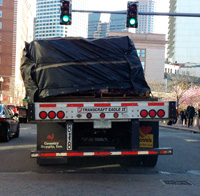 A Framingham motorist tragically lost her life yesterday when she slowed to avoid an unsecured mattress which flew off a truck on Rte. 128 in Burlington, Mass. Authorities believe the mattress broke free from a dump truck with a white cab occupied by two men. As the car slowed to avoid the mattress on the highway, a second car hit it causing fatal injuries.
A Framingham motorist tragically lost her life yesterday when she slowed to avoid an unsecured mattress which flew off a truck on Rte. 128 in Burlington, Mass. Authorities believe the mattress broke free from a dump truck with a white cab occupied by two men. As the car slowed to avoid the mattress on the highway, a second car hit it causing fatal injuries.
The truck operator did not stop at the scene or identify himself afterward. The victim had slowed her car, a Toyota Corolla sedan, and tried to avoid hitting the mattress. She was struck from behind by a Toyota Tundra pick-up truck. The Toyota Tundra pick-up truck driver suffered minor injuries. Police are looking for the driver of the dump truck, which left the scene.
Unfortunately, this was not an isolated case.
According to the AAA Foundation for Traffic Safety, there are approximately 25,000 crashes a year in North America related to unsecured loads, resulting in approximately 80-90 deaths. Here in Massachusetts, a 27-year-old Lynn man was killed in a similar accident in September 2011, when a 400-pound tire being hauled by a truck broke loose on Interstate 93 in Somerville.
Drivers have a responsibility to secure loads and operate safely, whether they are commercial or non-commercial drivers. All 50 states and the District of Columbia have statutes pertaining to unsecured loads and fines, which range from $10 to $5,000, according to the Government Accountability Office (GAO). In 15 states, violations carry the possibility of imprisonment. Drivers may also face civil lawsuits to compensate the injured and their family.
This may be the third serious truck-related accident in Massachusetts this week. On Sunday, a pedestrian in Uxbridge was struck and killed by an unknown driver. The driver of a tractor-trailer truck, who is employed by Gorham Transport, later contacted police and said he was in the area. Police are investigating.
On Monday morning, a tractor-trailer carrying 11,000 gallons of gasoline overturned in Fall River, engulfing in fire and requiring some to be evacuated. The driver was treated for non-life threatening injuries and the crash is still being investigated.
About Breakstone, White & Gluck
Our Boston truck accident lawyers have over 100 years combined experience representing individuals injured in tractor-trailer and commercial truck accidents. If you have been injured, learn your rights for seeking compensation. For a free legal consultation, contact us toll-free at 800-379-1244 or 617-723-7676 or use our contact form.
Commercial Truck Accidents Cause Thousands of Deaths Each Year
 A tractor-trailer overturned and caught fire this morning in Fall River, causing major traffic delays on Route 24 as well as evacuations.
A tractor-trailer overturned and caught fire this morning in Fall River, causing major traffic delays on Route 24 as well as evacuations.
The tractor-trailer, which was transporting 11,000 gallons of gasoline, overturned near Exit 5 northbound. Police report the driver was sent to Rhode Island Hospital with non-life threatening injuries. The truck was owned by J.P. Noonan of West Bridgewater. No other vehicles were reportedly involved. At this time, the cause of the truck accident is under investigation.
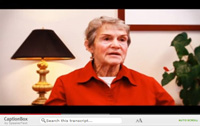 The trial lawyers of Breakstone, White & Gluck have extensive experience representing individuals who have been seriously injured in tractor-trailer accidents. Recently, we have obtained $3 million for a woman who was hit head on by an inattentive operator of an 18 wheeler. Below, an online review from another recent client who was rear-ended by a tractor-trailer and seriously injured:
The trial lawyers of Breakstone, White & Gluck have extensive experience representing individuals who have been seriously injured in tractor-trailer accidents. Recently, we have obtained $3 million for a woman who was hit head on by an inattentive operator of an 18 wheeler. Below, an online review from another recent client who was rear-ended by a tractor-trailer and seriously injured:
Today’s accident points to the fact that truck accidents are too common on our roads. In 2014, Massachusetts has already seen at least two serious tractor-trailer accidents, including one last week on the Mass Turnpike in Palmer and another in Oxford earlier this month.
The Oxford accident sent two people to the hospital with life-threatening injuries. In 2012, over 3,500 people died in large truck crashes in the U.S., according to the Insurance Institute for Highway Safety (IIHS). The majority – 67 percent – were passenger vehicle occupants. Truck occupants accounted for 17 percent of deaths and the remaining 15 percent of deaths were pedestrians, bicyclists and motorcyclists.
Truck drivers have special licensing requirements and regulations to follow. Trucks are harder to control than passenger cars and have much longer stopping distances. According to IIHS, loaded tractor-trailers take 20-40 percent farther to stop than cars and even more distance in poor weather conditions or if a truck has poorly maintained brakes.
To prevent driver fatigue, drivers of large trucks must follow federal regulations restricting their time behind the wheel. They are subject to federal hours-of-service regulations, a maximum of 11 hours of driving after 10 consecutive hours off-duty, according to the Federal Motor Carrier Safety Administration.
Truck companies must also follow regulations for inspection, repair and maintenance of their vehicles and not operate any vehicle which is likely to cause an accident or breakdown.
Attorney David White Discusses Product Recalls on Fox 25 TV
Last weekend, two young children in Franklin tragically died after getting trapped in a defective wooden hope chest during a game of hide and seek. The chest was one of 12 million manufactured by the Lane furniture company of Virginia between 1912 and 1987.
Attorney David White from the Boston product liability firm, Breakstone, White & Gluck, commented on ways consumers can avoid injuries from defective products, including second-hand goods.
According to reports, the Franklin children were probably playing a game when they got into the chest and the lid closed. The lid automatically latched shut when closed and could not be opened from the inside. When the family purchased the second-hand chest 15 years ago, they had no warning of the defect or the fact that the product had been recalled.
Boston News, Weather, Sports | FOX 25 | MyFoxBoston
The chests were recognized as defective after four children were trapped in them and died prior to 1996, leading to a product recall 1997. In 2001, Lane paid a $900,000 civil penalty to the Consumer Product Safety Commission (CPSC) to settle claims that it had provided late notice of the deaths to those four children.
Even after the recall, probably six million of the chests still have the defective locks. Although there have been sporadic efforts to notify the public of this widespread and serious hazard, it is not clear how aggressively Lane has tried to make sure the defective latches are either removed or replaced.
White, a Boston attorney who specializes in injury and liability cases, said companies have a responsibility to inform clients of recalls and stores have a responsibility not to sell recalled products, but sometimes consumers still do not receive notice, including in cases involving products purchased in second-hand stores. He said defective products are causing injury.
White told Fox 25 that the problem is no one registers a hope chest with a company as they would an electronic product such as a new television. His safety tips:
1) Consumers can learn what hazard signs to look for in products and remove unsafe products on their own, even if they have not been recalled.
2) A few products to watch carefully:
- Cribs, car seats, bassinets, strollers and other products which hold babies.
- Products with small pieces that break off.
- Novelty toys with magnets which children can easily swallow. These have been recalled.
3) Consumers can check the CPSC website for recalls.
4) Read age-appropriate labels on toys. Your younger children may not be old enough to play with their older siblings’ toys.
Read More
After a Child’s Death, Nearly 3 Million IKEA Children’s Lamps are Recalled in U.S.
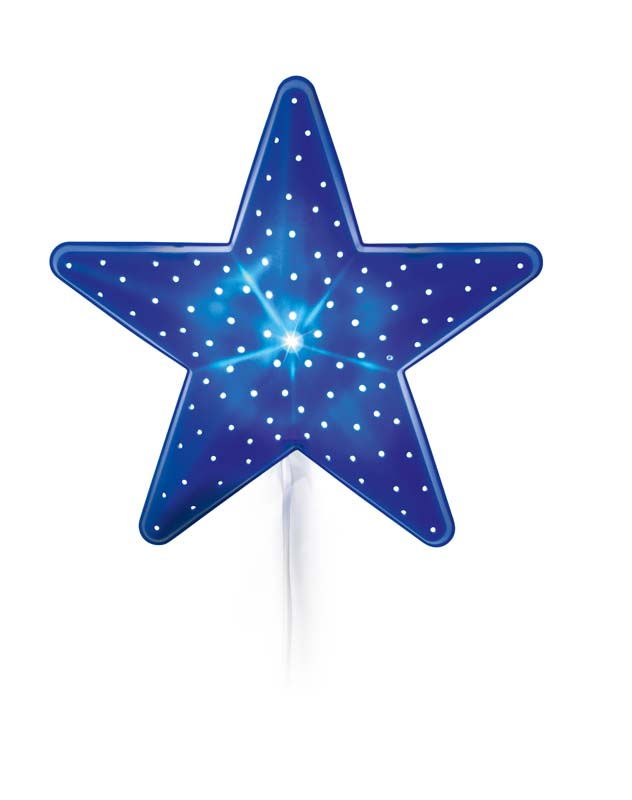 Parents who shop at IKEA should be aware of a far-reaching product recall involving a children’s lamp which has been blamed for a 16-month-old’s death.
Parents who shop at IKEA should be aware of a far-reaching product recall involving a children’s lamp which has been blamed for a 16-month-old’s death.
On Dec. 11, the Consumer Product Safety Commission (CPSC) announced the recall of IKEA children’s wall mounted lamps sold from July 1999 through May 2013. A total of 23 million of the SMILA-series wall mounted lamps were sold around the world. Of these, 2.9 million were sold in the United States and 1.1 million in Canada.
The recall follows two tragic incidents in Europe. In one case, a 16-month-old child in a crib died after becoming entangled in the lamp’s cord. In another incident, a 15-month-old became entangled in the cord and was nearly strangled.
Consumers are instructed to stop using the recalled lamp and contact IKEA for a free repair kit.
The lamps were recalled by IKEA North America, of Conshohocken, Pennsylvania. IKEA is a Swedish company which sells home furniture. The company has 340 IKEA stores in 42 countries. The company has 38 stores in the United States, including one on Route 24 in Stoughton, which opened in 2005. This is the only Massachusetts IKEA store.
The defective wall lamps were sold in eight designs through IKEA’s stores, catalog and ikea-usa.com for between $10 and $13.
What Consumers Should Know
Here is the IKEA lamp recall notice. The lamp was sold in eight designs, including a blue star, yellow moon, pink flower, white flower, red heart, green bug, blue seashells and an orange horse. The lamps are about 11 inches by 11 inches and have a seven-foot long electrical cord. Model numbers are included in the recall notice.
Parents who contact IKEA for a repair kit will be given self-adhesive fasteners to attach the lamp’s cord to the walls along with safety instructions.
Recalls Related to Children
Each year, the CPSC announces recalls dozens of dangerous toys. For 2012, the agency estimates that toy-related injuries resulted in 192,000 visits to U.S. hospital emergency rooms.
The dangers poorly made toys can pose is well known and always in the spotlight around the holiday shopping season. But the public often overlooks the dangers in other children’s products, which are often used even more frequently than toys. In 2013, a number of defective children’s products were recalled, including bunk beds which posed an entrapment risk, children’s utensils, children’s hooded sweatshirts with drawstrings, pajamas and baby strollers. See the link below to learn more.
Related
Summary of 2013 product recalls, Safe Kids Worldwide
IKEA Recalls Children’s Wall-Mounted Lamps Due to Strangulation Hazard; One Child Death Reported, Consumer Product Safety Commission.
Read More
December Product Recalls Include Holiday Decoration, Baby Carrier
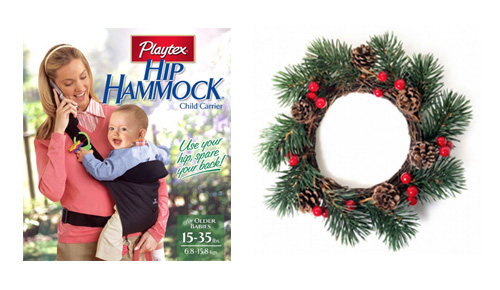 The Consumer Product Safety Commission (CPSC) announced several recalls last week, including a popular holiday decoration and two children’s products. The commission also announced its annual list of winter-related products which were recalled during other seasons.
The Consumer Product Safety Commission (CPSC) announced several recalls last week, including a popular holiday decoration and two children’s products. The commission also announced its annual list of winter-related products which were recalled during other seasons.
Yankee Candle Ring
The Yankee Candle Company recalled about 15,000 pine berry candle rings in the U.S. and 2,000 in Canada. They pose a fire risk because of the synthetic foliage, berries and cones ornamentation. No injuries have been reported. The recalled rings were sold in Yankee Candle and Hallmark stores nationwide from September 2013 through October 2013. They were sold for between $8 and $10 at these stores, as well as through Yankee Candle catalogs and Yankeecandle.com. Consumers are asked to return candles to the nearest Yankee Candle store for a full refund. See the CPSC recall notice.
Playtex Hip Hammock Infant Carriers
Playtex is offering parents a full refund after recalling a baby hammock-style carrier. Playtex Hip Hammock infant carriers were recalled because they pose a fall hazard to children. About 305,000 baby carriers were recalled in the U.S. and 36,000 in Canada.
The company received 87 reports of the product’s buckles cracking or breaking. Two reports involved injuries, including one infant who required care at a hospital emergency room.
Consumers are instructed to stop using the carrier and contact Playtex for a full refund. These carriers were sold from June 2004 to December 2008 in the U.S. and through January 2010 in Canada. Purchase price was about $40 for the basic model and about $60 for the deluxe model.
In the U.S., the baby carrier was sold at Burlington Coat Factory, Target, Amazon.com and other baby and discount stores.
The carriers are designed for children 15 to 35 pounds and are made of a suede fabric in black and navy. They have black, black and white check and burgundy lining on the inside. Read the CPSC recall notice for model numbers.
Cubetensils Children’s Eating Utensils
Edoche Inc. recalled about 1,100 children’s spoon and fork sets because the handle can detach, posing a choking hazard for infants. The Seattle, Wash. company received one report of a handle detaching and a baby putting it in their mouth. No injuries were reported.
The utensils were sold in seven different designs and patterns from May 2012 through November 2013 for about $8 per set. They were sold at retailers and specialty stores nationwide, along with Amazon.com and ebay.com. Consumers can contact Edoche for a full refund. Read the CPSC recall notice for more information.
Consumer Product Safety Commission Website
If you have never used this website, it is a great tool to become familiar with in the New Year. You can find the latest product recalls and more information about ones you learn about in the news. But often, product recalls are not picked up by the news media so it is important to seek out the information yourself periodically. If you use Facebook, you can also stay up-to-date by following our page, where we often report on recalls.
Boston Massachusetts Personal Injury and Medical Malpractice Lawyers | Promote Your Page Too

Here is one page from the CPSC website which may help you now: “Check for These Winter Products Recalled Last Summer.”
Read More
Use Space Heaters and Home Heating Equipment Safely
Home heating equipment is the second leading cause of home fires in Massachusetts. Because half of all home heating fires occur in December, January and February, now is the time to consider if you are heating your home safely.
The most important step is to make sure your smoke alarm has working batteries. Also, have your home heating equipment checked and serviced by a qualified professional each year. They can identify problems and clear any debris in your chimney or vents. Any obstruction increases the chance of fire and can lead to carbon monoxide poisoning, which can be fatal. Other ways to protect your family and home:
Space Heaters
Space heaters cause 33 percent of all home heating fires and 81 percent of home heating fire deaths, according to National Fire Protection Association (NFPA). If you have an older model, consider purchasing a new one with an automatic shut-off feature. Also, search for your model on the Internet to make sure it has not been recalled. The best resource is the Consumer Product Safety Commission website.
Use space heaters on even surfaces and always keep them three feet away from combustibles, such as bed spreads and clothing. Also keep children and pets at least this far away.
Do not use an extension cord and use space heaters on a flat surface where they will not tip over. Remember to turn it off before you go to sleep or if you leave the room.
No Overloaded Electrical Outlets
Be careful not to overload electrical outlets. Space heaters draw a large amount of electricity. Shift around appliances if you think you may be overloading an outlet.
Keep Vents Clear
Monitor your indoor and outdoor heating vents throughout the winter. When it snows, clear your outside heating vents even before you shovel your driveway.
Wood, Coal and Pellet Stoves
In Massachusetts, you need a building permit to install wood, pellet or coal burning stoves and fireplaces. They must be inspected by a local building inspector prior to use.
Last year, there were over 800 fire incidents in Massachusetts involving chimneys, fireplaces and woodstoves. Many result from a build-up of creosote, a by-product of burning wood.
Read the manufacturer’s instructions on how to use your heating equipment. Do not use flammable liquids to start a fire. For fireplaces, check that the damper is open before starting a fire so there is not a build-up of smoke and carbon monoxide.
Use the fireplace screen to prevent flames and sparks from moving outside the fireplace and causing burns and injuries. Do not close the damper until the fire is fully out.
When finished, dispose of ashes in a metal ash can and keep it outside your home and garage. Also keep it away from porches and decks.
Cooking
Make sure you have proper ventilation before you start cooking. Do not use grills inside your home.
Related:
Heating fire safety: Wood Stoves, Space Heaters and Fireplaces, U.S. Fire Administration.
Read More

